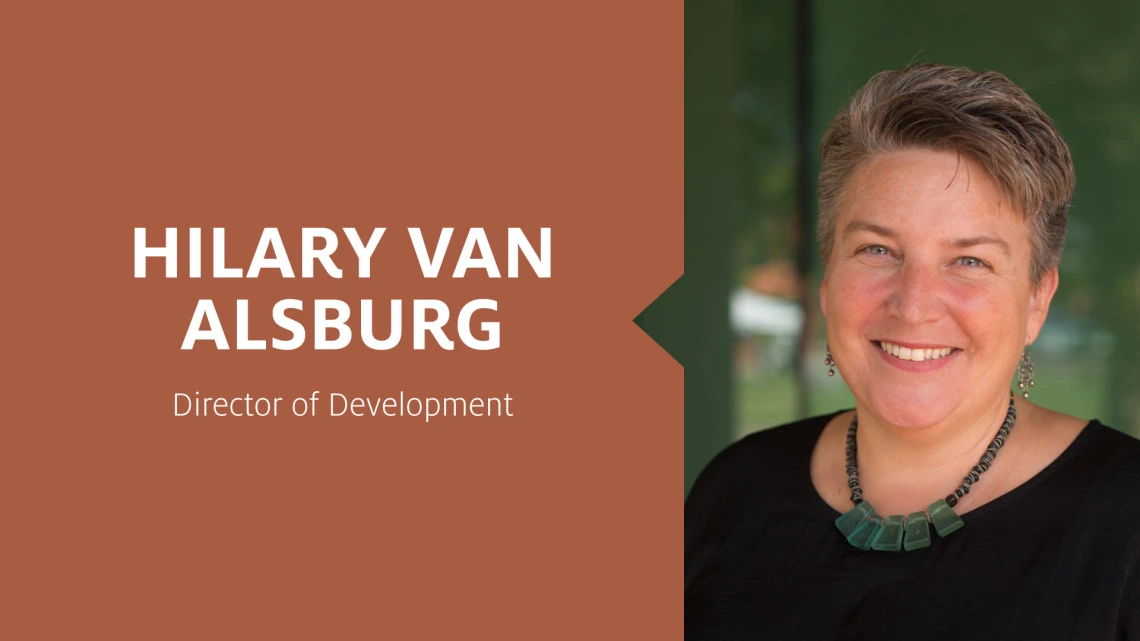Hilary Van Alsburg: Why do we need libraries? I'll tell you

This op-ed by UA Libraries Director of Development Hilary Van Alsburg was originally published by the Arizona Daily Star on April 12, 2019.
The importance of libraries speaks for itself, or so I thought when I became the development director for University of Arizona Libraries. What I have discovered in my work to secure support for UA Libraries is that people do not necessarily understand the “why.” The call for support has sometimes been met with skepticism, even cynicism. Why do we need libraries? Aren’t libraries obsolete? What do libraries offer that’s not on the internet? These are questions I am met with routinely.
In honor of National Library Week, I ask you to consider the value of libraries. Libraries nurture a love of reading for beginning readers, foster literacy and inspire life-long learning. At a time when funding for public libraries is being reduced nationally, or possibly eliminated, libraries deserve our support and advocacy.
As the parent of future UA Wildcats, I am grateful the University of Arizona has made libraries a priority. UA Libraries has just broken ground on a transformative renovation project that will allow for an expansion of services and programs in a cross-campus collaboration designed to better support students and faculty. The “why support libraries” question is answered for me daily, when I see the impact on students who fill our collaboration rooms and study spaces working to make their mark on the world.
The ability to readily access reliable, original source material is quite simply the cornerstone of democratic society. Libraries serve as social equalizers, providing open access to information to everyone, untracked and unfiltered. Libraries level the playing field as a foundational element of freedom of speech and freedom of the press.
While physical books remain an important component, libraries also provide voluminous digital information. Libraries don’t merely house information, they also serve as centers for collaboration and creativity. Libraries provide use of computers, journal subscriptions and databases, and increasingly unique offerings like 3D printers, laser cutters and virtual reality studios. With programs from coding to computer programming to hackathons, libraries bring people from all walks of life and disciplines together to share differing perspectives and investigate possibilities.
Libraries are at the forefront of innovation and entrepreneurship, often serving as the “first office” for student researchers. Librarians and library staff have expertise in information science, trained to help patrons conduct research, decipher reliable sources and follow threads of information to new discoveries. While evolving, libraries also preserve our history and reflect our communities. Libraries provide access to rare books, photographs, manuscripts, oral histories, maps, political records and any number of programs and lectures, available and welcoming to all, at no cost.
If all this doesn’t convince you, consider libraries as employers. According to the American Library Association, more than 400,000 people work in the library sector nationally. This number doesn’t include student workers and invaluable volunteers, all committed to helping anyone find anything. Libraries not only serve as employers, they also help people find employment and launch businesses.
The impact of libraries as a sector is economically significant. According to the Institute of Museum and Library Services, in 2015, there were 1.39 billion visits to public libraries. Public libraries offered 4.7 million programs, attended by nearly 107 million people. Public libraries made 1.31 billion collection items available to patrons and provided access to over a quarter million internet computers. At UA Libraries alone, in fiscal year 2018, there were more than 2 million visits to the libraries, over 9 million e-articles and e-books accessed, and more than 350 librarians, staff and students employed.
Connect with your library, the importance will speak for itself.
